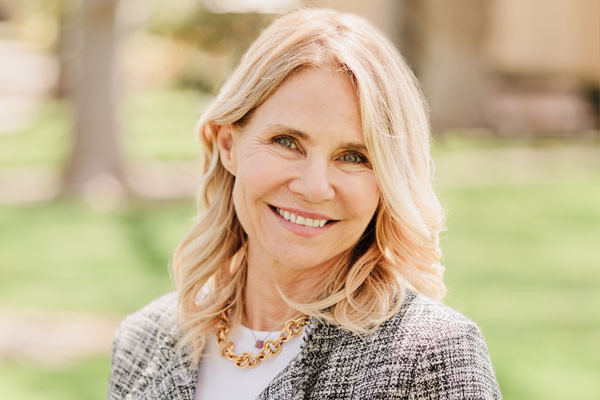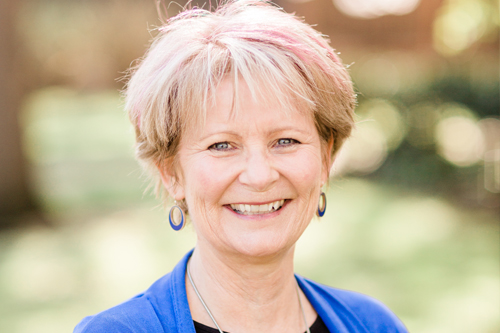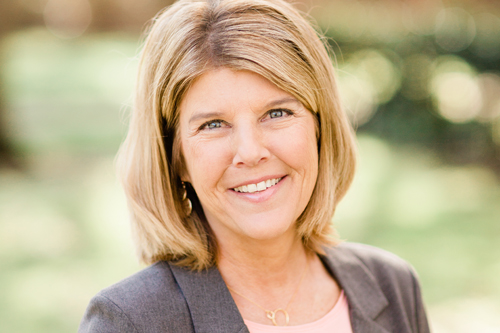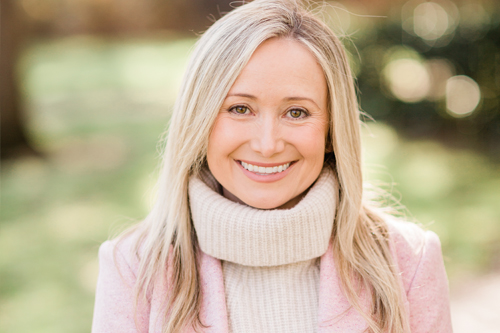By now, most of our lives have already been significantly impacted by the COVID-19 coronavirus situation. While there has not been a mandated government shutdown of assisted living communities, our partners have instituted protocols to ensure their residents and staff stay as safe and healthy as possible. The coronavirus has made it crucial that practical steps are taken to safeguard the seniors we serve and the team members who care for them.
We have outlined a few of these protocols and precautions below that are based on the CDC and Health Department guidelines and are in place effective immediately.
Visiting Restrictions
- Only essential visitors will be permitted to enter the communities until further notice. (*Essential visitors are defined as: adults over the age of 18 who are medical providers, hospice care providers, or visitors of residents who are at the end of life.)
- Anyone entering a senior community will be screened by: digital registration processes, answer detailed health and travel screening questions and have their temperature read and documented.
- All staff will be screened and temperatures taken and documented at the start of each shift.
- If an essential visitor, including medical personnel, has traveled outside of the United States in the last 14 days, those that do not pass the screening process or have a fever greater than 100.4 will not be allowed to visit.
Community Precautions
In addition to limiting visitors, they are implementing the following guidelines within the community itself:
- Limiting gatherings of individuals to no more than 10 people.
- Activities will continue in a limited way to avoid close contact and supplies will be properly sanitized between uses.
- Increase in frequency of cleaning and sanitizing rooms and common areas
- Many are suspending normal meal services in the restaurants and dining rooms, but are offering complimentary room service as well as to-go options at no additional charge.
- Working on new ways of keeping everyone connected by posting updates on websites, helping residents utilize technology such as FaceTime and Skype with family and friends, hosting virtual classes and offering families additional phone, text or email alerts.
Can you still move to a Senior Living Community?
Yes! We continue to monitor the situation, many communities are still able to take in new residents and work with those that are both urgent and non-urgent moves. Communities have suspended in-person tours and events, but are able to do live virtual tours and answer any questions over the phone or by email. In addition, many communities are only allowing move-ins into a private, at least for the first 14 days. At that time if appropriate, the new resident can be moved into a semi-private or shared room.
The situation remains fluid and we are here to help be a resource to help answer any and all of your questions.
Please stay safe,
Rachel, David and Johnell
Team Exceptional Senior Placement




 I have always thrived in careers where I can help people. I spent my first 20 plus years out of college in various Human Resources roles from assisting in job placements, navigating employees with the complexity of health insurance, and providing at-work accommodations to employees with various levels of needs. During this time I also became a personal trainer and focused primarily on working with aging clients to encourage them to stay active, maintain their balance, and avoid osteoporosis.
I have always thrived in careers where I can help people. I spent my first 20 plus years out of college in various Human Resources roles from assisting in job placements, navigating employees with the complexity of health insurance, and providing at-work accommodations to employees with various levels of needs. During this time I also became a personal trainer and focused primarily on working with aging clients to encourage them to stay active, maintain their balance, and avoid osteoporosis. After spending the first 20+ years of my professional life in Hospitality Sales and Marketing for some of the largest hotel companies in the world, I had created a comfortable life for myself working in corporate America. And yet, after spending so many hours each day creating vacations and corporate travel programs, I couldn’t help but feel there was something more I could be doing each day to impact the greater societal good. Then, as is the case with many “adult children” both of my parents were diagnosed with life-threatening illnesses. My mother’s breast cancer had recurred after 30 years in remission and my father’s bladder cancer was a first-time diagnosis. We were faced with the frightening realization that although effective, the treatments would not save my mom’s life this time, and my father, while given a few more years of life, would ultimately succumb to his disease. Walking my parents through their end-of-life processes gave me an “up close” view of what the aging and medical processes are like in the United States. It is overwhelming caring for aging and often medically ill parents, raising young children, and still managing demanding careers working full time. To say it is a lot to handle is putting it mildly.
After spending the first 20+ years of my professional life in Hospitality Sales and Marketing for some of the largest hotel companies in the world, I had created a comfortable life for myself working in corporate America. And yet, after spending so many hours each day creating vacations and corporate travel programs, I couldn’t help but feel there was something more I could be doing each day to impact the greater societal good. Then, as is the case with many “adult children” both of my parents were diagnosed with life-threatening illnesses. My mother’s breast cancer had recurred after 30 years in remission and my father’s bladder cancer was a first-time diagnosis. We were faced with the frightening realization that although effective, the treatments would not save my mom’s life this time, and my father, while given a few more years of life, would ultimately succumb to his disease. Walking my parents through their end-of-life processes gave me an “up close” view of what the aging and medical processes are like in the United States. It is overwhelming caring for aging and often medically ill parents, raising young children, and still managing demanding careers working full time. To say it is a lot to handle is putting it mildly. People often tell me I have an old soul. I prefer to say that I’m “well-seasoned” mixed with a bit of grit that can only come from being raised in a large midwestern family with solid kindred ties.
People often tell me I have an old soul. I prefer to say that I’m “well-seasoned” mixed with a bit of grit that can only come from being raised in a large midwestern family with solid kindred ties.  Inspiration.Kindness.Compassion.Patience. Perseverance. These are a few of the words that come to mind when I think of my mom. She was the oldest of six girls who grew up in a small fishing village called Spencer's Cove located on Long Island in Newfoundland. She left the island at the age of 17 and by the time she was 20 she was a registered nurse. I had the privilege of growing up with this amazing woman who, as my role model, was instrumental in shaping my life. My own career path took me into hospitals and skilled nursing facilities as a Registered Dietitian. My first opportunity to work with seniors began in a Continuing Care Retirement Community when I was a twenty-something Dietitian. While I have worn many hats through my career, it is those first years of working in a retirement community that left a lasting impression. I can recall many of the residents, the stories we shared and the impact they had on my life. Part of my professional and personal journey has been learning to understand dementia and dementia care.There is nothing more informative than being thrown into the deep end of the pool while helping a loved one with dementia. That’s what it felt like after my mom was diagnosed with Azheimer’s disease. While I learned a lot through supporting my mom during this time, I also began working in a senior community that specializes in dementia care. Being in the presence of over one hundred residents who have been diagnosed with dementia reinforces the value of listening, patience and truly being in the moment.
Inspiration.Kindness.Compassion.Patience. Perseverance. These are a few of the words that come to mind when I think of my mom. She was the oldest of six girls who grew up in a small fishing village called Spencer's Cove located on Long Island in Newfoundland. She left the island at the age of 17 and by the time she was 20 she was a registered nurse. I had the privilege of growing up with this amazing woman who, as my role model, was instrumental in shaping my life. My own career path took me into hospitals and skilled nursing facilities as a Registered Dietitian. My first opportunity to work with seniors began in a Continuing Care Retirement Community when I was a twenty-something Dietitian. While I have worn many hats through my career, it is those first years of working in a retirement community that left a lasting impression. I can recall many of the residents, the stories we shared and the impact they had on my life. Part of my professional and personal journey has been learning to understand dementia and dementia care.There is nothing more informative than being thrown into the deep end of the pool while helping a loved one with dementia. That’s what it felt like after my mom was diagnosed with Azheimer’s disease. While I learned a lot through supporting my mom during this time, I also began working in a senior community that specializes in dementia care. Being in the presence of over one hundred residents who have been diagnosed with dementia reinforces the value of listening, patience and truly being in the moment. When I was a kid I thought my grandpa was a cowboy. He owned horses, he chewed a toothpick between his lips, and he wore a Stetson cowboy hat. While he wasn’t really a bonafide cowboy, he did wear many different hats throughout his 94 years. He first wore an apprentice cap before donning a fireman’s helmet working for LAFD until his retirement. That’s when he wore a bucket hat, while he and my grandmother would sit in their tiny rowboat, casting fishing lines into the lake that was nestled at the perimeter of their property.
When I was a kid I thought my grandpa was a cowboy. He owned horses, he chewed a toothpick between his lips, and he wore a Stetson cowboy hat. While he wasn’t really a bonafide cowboy, he did wear many different hats throughout his 94 years. He first wore an apprentice cap before donning a fireman’s helmet working for LAFD until his retirement. That’s when he wore a bucket hat, while he and my grandmother would sit in their tiny rowboat, casting fishing lines into the lake that was nestled at the perimeter of their property. From the time I was a child, spending time with elders has always been a part of who I am. My god-parents were Native American and I believe that is where my admiration, my understanding and my compassion truly stemmed from, as their culture defined what it is to respect your elders. I always had an unwavering desire to help those older than me with chores, companionship and anything else that makes their lives easier and more meaningful. The gift of hearing life stories being told and watching faces light up in delight that someone wanted to hear more, will always be my favorite part of spending time with clients and elder friends.
From the time I was a child, spending time with elders has always been a part of who I am. My god-parents were Native American and I believe that is where my admiration, my understanding and my compassion truly stemmed from, as their culture defined what it is to respect your elders. I always had an unwavering desire to help those older than me with chores, companionship and anything else that makes their lives easier and more meaningful. The gift of hearing life stories being told and watching faces light up in delight that someone wanted to hear more, will always be my favorite part of spending time with clients and elder friends.
 With the loss of my Father In Law thrusting my family’s life in to a spiral as they tried to navigate care options, Hospice, and even just “the new day to day” when the stable rock of the family suddenly needed help, life took a new perspective for me. My corporate career just did not seem fulfilling in the right way for me personally and my husband and I knew we wanted to do something more meaningful for us in impacting others.
With the loss of my Father In Law thrusting my family’s life in to a spiral as they tried to navigate care options, Hospice, and even just “the new day to day” when the stable rock of the family suddenly needed help, life took a new perspective for me. My corporate career just did not seem fulfilling in the right way for me personally and my husband and I knew we wanted to do something more meaningful for us in impacting others.
Recent Comments